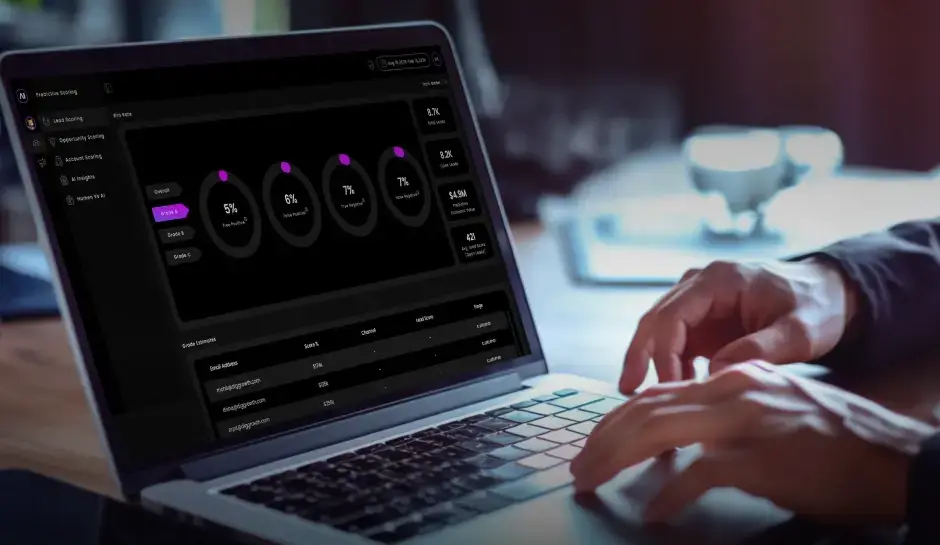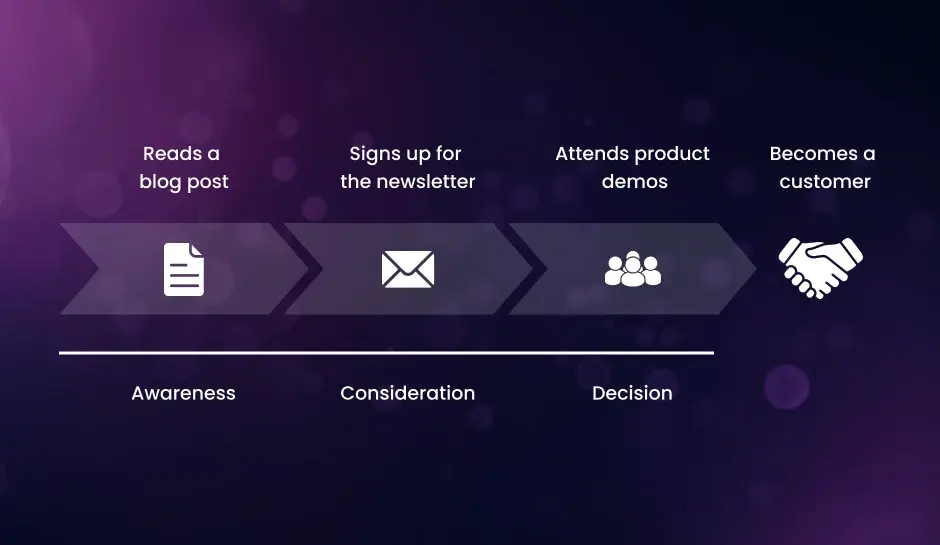
Discover the Power of Data: Mastering SEO Analytics Reports
High-end SEO and analytics expertise are needed to leverage the power of data optimally. Follow this blog to learn about SEO analytics reports in detail.
SEO analytics is the backbone of any successful online marketing strategy. By leveraging the deep insights that analytic reports provide, you can decode the story behind your website’s performance and uncover growth opportunities. SEO analytics involves meticulously gathering, monitoring, and interpreting data related to your website’s organic search performance. These reports are not just numbers and graphs—they are the compass that directs your digital presence.
Understanding the impact of analytical reports is crucial for website owners and marketers. They enable you to identify strengths and weaknesses in your website’s search engine optimization, allowing informed decisions that dramatically enhance visibility and user engagement. Without these metrics, you’re navigating the digital landscape blindfolded, missing out on vital indicators that could make or break your online success.
Tools like Google Analytics allow detailed SEO data tracking. By interpreting this rich data with various other SEO tracking tools, you can create an analytics report that illuminates optimizing your website, enhancing user experience, and climbing the search engine rankings—effectively transforming clicks into customers.
“Through SEO analysis, you can gain a deeper insight into your company’s current organic traffic sources while grasping exactly how consumers interact with your website.”–ministrystaffingsearch.org
Identifying Key Metrics for SEO Success
Grasping your SEO efforts’ essential metrics is crucial for steering campaigns toward genuine results. These metrics serve as a compass guiding you through the complex SEO landscape.
Search Engine Rankings Impact on Visibility
The position your website holds in search engine results pages (SERPs) directly influences the visibility of your content. A higher ranking increases the likelihood of attracting clicks and establishing domain authority. Securing top positions for targeted keywords is an undeniable marker of SEO success.
Significance of Organic Traffic
Organic traffic is the lifeblood of online sustainability. Unlike paid channels, organic traffic indicates the health and relevance of your site over time. Gauging the volume and quality of users arriving from search engines helps assess your SEO strategy’s effectiveness and identify growth areas.
Analyzing Keyword Performance
Keyword performance sheds light on how well your content aligns with user searches. Scrutinizing metrics like search volume, click-through rates (CTRs), and keyword rankings can pinpoint opportunities for content optimization, ensuring that your offering matches the user intent.
Evaluating Your Backlink Profile
Backlinks are endorsements from other websites, signaling trust and authority to search engines. Evaluating your site’s backlink profile involves reviewing the quantity and quality of inbound links. A robust backlink profile is a testament to a site’s credibility and is instrumental in achieving top SERP positions.
- Search Engine Rankings:
- Organic Traffic:
- Keyword Performance:
- Backlink Profile:
Benchmark where you stand in SERPs.
Monitor the lifeblood of your long-term growth.
Harness data to refine content strategies.
Cultivate a reputable online presence through quality links.
Pro Tip- Prioritize continuous monitoring and improvement of your keyword performance to ensure your content remains relevant and aligned with user intent, ultimately boosting your SEO success.
Analyzing Traffic Acquisition and Behavior
Deep-diving into SEO analytics reports will undoubtedly reveal the pivotal aspect of understanding your audience. How do you acquire traffic, and what do users do once they land on your site? A comprehensive traffic acquisition and behavior analysis informs you about your marketing strategies’ effectiveness and illuminates optimization and growth opportunities. Let’s explore some key components in this domain.
Click-Through Rate (CTR): A Measure of User Interest and Ad Effectiveness
A crucial metric, CTR, is the percentage of users who click on a link compared to the total number of users who view the page or ad. High CTRs are typically synonymous with compelling ad copy and effective keyword alignment. This metric serves as a direct indicator of what captures user interest and what prompts action.
Bounce Rate Insights: Gauging Page Relevance and User Experience
The bounce rate represents the percentage of visitors who navigate away from the site after viewing only one page. It’s a potent metric for assessing how well your content resonates with your audience. A high bounce rate may signal that a page’s content is irrelevant or that the user experience is lacking, necessitating a review of content alignment and usability.
Assessing Conversion Rate to Track the Performance of Your Goals
Often the most telling indicator of success, the conversion rate measures the percentage of users who take the desired action on your website, such as filling out a form or purchasing. Monitoring conversion rates across different traffic sources highlights which channels are performing best in achieving your business goals and where there is room for improvement.
- Organic Search:
- Paid Search:
- Direct Traffic:
- Referral Traffic:
- Social Media Traffic:
Monitor the efficiency of your SEO efforts.
Evaluate the ROI of your paid campaigns.
Determine the level of brand recall or awareness.
Assess the quality and relevance of your backlink profile.
Measure engagement and influence from social platforms.
Analyzing these metrics in your SEO analytics reports will unlock invaluable insights that directly inform your content strategy, on-site optimizations, and marketing tactics. This will lead to better performance and, ultimately, higher ROI.
Pro Tip- Continuously monitor and optimize your website’s bounce rate to ensure that your content remains relevant and engaging. It will improve user experience and increase the likelihood of conversion.
Enhancing Site Experience and Performance
The landscape of SEO is constantly evolving, and with it, the need to optimize site experience and performance becomes increasingly critical. A website’s performance not only impacts search engine ranking but also affects user engagement and satisfaction. In this segment, we delve into the importance of page load time, user engagement metrics, and mobile traffic analysis as pivotal components for refining your SEO strategy and enhancing overall website quality.
Importance of Page Load Time
It’s widely acknowledged that page load time is a significant factor for user experience and SEO ranking. Pages that load quickly tend to have lower bounce rates and higher levels of user satisfaction. Search engines reward fast-loading websites with better positioning in search results, which can lead to increased visibility and traffic. Optimizing image sizes, server response times, and caching methods are essential in improving page load speeds.
Examining User Engagement Metrics
User engagement metrics provide invaluable insights into how visitors interact with your website. Metrics such as average session duration, pages per session, and bounce rate shed light on the quality and relevance of your content alongside the effectiveness of your website’s design. By analyzing these metrics, webmasters can make informed decisions about content strategy, site architecture, and design enhancements that resonate with their audience and encourage longer, more meaningful interactions with the website.
Mobile Traffic Analysis: Adapting to a Mobile-First World
In a world where mobile internet usage has surpassed desktops, understanding and optimizing for mobile traffic is imperative. Mobile analytics can reveal user behaviors, preferences, and common issues encountered while navigating on smaller screens. By examining mobile traffic volume, conversion rates, and page load time on mobile devices, websites can provide an optimal experience for users on the go. Embracing responsive design and mobile-friendly features will help maintain the competitive edge necessary in today’s digital landscape.
Important: SEO analytics reports are not merely numbers and graphs—they are the roadmap to boosting your website’s performance and delivering a superior user experience. Stay ahead by continuously monitoring, analyzing, and tweaking your site to meet the ever-changing demands of both users and search engines alike.
Competitive Insights through SEO Analytics
Staying ahead in the digital space means understanding your website’s performance and how you compare to the competition. SEO analytics is crucial in uncovering competitive insights to propel your strategies forward.
Competitor Analysis: Learning from the Competition to Enhance SEO Strategies
Comprehensive competitor analysis is pivotal for gaining strategic advantages in search rankings. By assessing your competitors’ keyword performance, backlink profiles, and content strategies, you can identify gaps in your strategy and areas where they excel. You can then leverage this intelligence to refine your SEO approach, targeting weaknesses in their tactics or capitalizing on untapped opportunities.
Utilizing Content Performance Data to Inform and Adapt Your Content Plan
Your content’s performance against your competitors is an invaluable source of information. You can understand what engages your audience by monitoring metrics like time on page, bounce rate, and social shares for your content and your rivals. Use this information to adapt your content plan, ensuring that it meets or exceeds the standards set by your competition and resonates better with your intended audience.
Finding Improvement Opportunities with Technical SEO Audit Findings
A Technical SEO Audit provides a deep dive into both your website’s technical health and that of your competitors. By identifying issues like slow page load times, mobile usability concerns, or crawl errors and seeing how your site compares, you can prioritize fixes to improve your site’s performance in search rankings. Recognize and swiftly implement key optimizations to gain an edge in your market.
Goal Tracking and eCommerce Considerations
When delving into SEO analytics reports, you must extend your vision beyond mere traffic and ranking positions to understand the real impact of your SEO efforts. Goal tracking is an indispensable facet of measuring the attainment of your site’s objectives. It involves setting up specific markers within your analytics platform, enabling you to monitor when a visitor completes a desired action, such as signing up for a newsletter or downloading a resource.
Implementation of Goal Completions for Various Site Objectives
Implementing goal completions helps quantify your website’s effectiveness in engaging and converting visitors. Each goal reflects a strategic intent, giving you clearer insights into user behavior and the quality of traffic drawn by your SEO initiatives. Examples of these goals could be:
- Form submissions
- Account creations
- Content downloads
- Video views
By evaluating the completion rates of these actions, you can gauge the success of your content and user interface design, adjust your strategies, and optimize your web presence for better outcomes.
eCommerce Tracking: Measuring the Direct Success of Product Pages and Conversion Funnels
For eCommerce sites, tracking extends into scrutinizing the performance of product pages and conversion funnels. eCommerce tracking captures data on user interactions with your products—such as views, adds to cart, and purchases—telling you not only how users arrive at your site but how they interact with your products and follow through the buying process. Understanding this journey allows you to:
- Refine product listings for better engagement.
- Optimize checkout processes to reduce cart abandonment
- Analyze transaction details to derive average order values and revenue metrics
Accurately measuring these interactions positions you to make data-driven decisions in enhancing your users’ online shopping experience and, ultimately, increasing your site’s conversion rates.
Regardless of your marketing agency’s specialization, SEO is an undeniably important factor for your clients. Consistent SEO reporting allows you to keep track of your agency’s efforts and ensure that your client’s SEO doesn’t hit the fan, so to speak.”–
agencyanalytics.com
Structuring and Customizing Your SEO Report
Creating an SEO analytics report that provides valuable, clear, actionable insights is an art. How you structure and present your data can significantly affect how well your findings are understood and leveraged to improve a website’s search engine performance. You must know here to ensure your SEO reports hit the mark every time.
How to Structure Data and Insights for Clarity and Actionability
Clarity and actionability are the pillars of a useful SEO report. Start with an executive summary that captures the essence of your findings and recommended actions. Follow this up with detailed analysis, organizing data logically, often from high-level metrics to deeper analyses. Ensure each section answers a specific question relevant to your audience’s goals.
- Begin with an overview of your main findings.
- Group similar metrics to tell a coherent story.
- Use a logical flow that mirrors the decision-making process.
- Include a section on recommendations and potential next steps.
- Customizing Report Content Based on Client or Stakeholder Needs
Your SEO report should not be one-size-fits-all. Customize reports to reflect clients’ or stakeholders’ unique concerns and objectives. If they’re focused on organic traffic growth, emphasize those metrics. If conversion rate is their priority, make that the centerpiece of your report.
- Identify the key metrics that align with stakeholders’ goals.
- Highlight successes and areas needing improvement related to these goals.
- Adjust the depth of analysis to your audience’s SEO knowledge level.
Tips for Making Reports Visually Appealing and Easy to Understand
A well-structured report should also be visually engaging to ensure that the reader’s attention is captured throughout. Utilize charts, graphs, and tables to represent data points. Color-code elements for quick reference, and don’t forget that white space is your friend; it can help avoid a cluttered look and feel.
- Incorporate visuals like bar charts, line graphs, and pie charts to illustrate trends.
- Use bullet points for easier scanning and comprehension of key takeaways.
- Employ consistent branding elements for a professional and cohesive look.
- Keep the design simple, clean, and focused to avoid overwhelming your audience.
A structured and customized SEO report is a roadmap for digital success, not just a list of metrics. Tailor each report to tell a compelling story grounded in data that drives decision-makers to take informed actions.
Measuring and Reporting on SEO Outcomes Effectively
Measuring and reporting on SEO outcomes is not just about recording numbers; it’s about turning those numbers into insights and taking actionable steps toward optimizing your online presence. Establishing clear benchmarks and report frequency ensures that you are keeping up with the volatile nature of search engine ranking factors and can adjust your strategies promptly.
Establishing Report Frequency and Benchmarks
Successful SEO analytics reports begin with setting a consistent schedule for monitoring and evaluating your digital performance. Choose a frequency that aligns with your business goals and allows enough time for significant data accumulation, whether weekly, monthly, or quarterly. Establish clear benchmarks based on your historical data and industry standards to measure your progress and set realistic targets for future growth.
Best Practices for Translating Data into Actionable SEO Tactics
It’s crucial to look beyond the numbers and understand their story. Analyze the trends and patterns within your SEO analytics to identify areas for improvement. Core metrics such as organic traffic volume, bounce rate, conversion rates, and keyword rankings offer a foundation to evaluate the health of your SEO strategies. Use this data to formulate targeted tactics for content optimization, link building, and user experience refinement.
- Focus on metrics that directly relate to business objectives
- Segment data to identify which areas are performing well or need attention
- Adjust strategies based on a blend of quantitative data and qualitative insights
- Use competitive analytics to uncover new opportunities and refine your edge in the marketplace
Communicating Insights and Recommendations to Clients or Internal Teams
An essential part of SEO reporting is communicating your findings clearly and effectively. Whether you’re reporting to clients or internal teams, ensure that your insights and recommendations are presented in an accessible manner. Stress the implications of the data and the actions that need to be taken. Support your strategies with solid evidence and ensure that your reports empower decision-makers to act confidently towards enhancing their SEO performance.
- Utilize visual aids such as graphs and charts for easier data interpretation.
- Align SEO objectives with broader marketing goals for a unified approach
- Illustrate the potential impact of recommendations with projections and case studies
- Encourage feedback to refine the reporting process and align it closer to client or team needs.
Conclusion
SEO analytics and reports are not just a one-time checklist item for your website’s success—they are an ongoing voyage into the ever-evolving landscape of search engine optimization. Every data gathered provides a building block upon which you can continually improve and refine your SEO strategies. Leveraging SEO analytics reports for continuous improvement cannot be overstated. They are the compass that guides your efforts, ensuring that your website remains visible, relevant, and competitive in the digital space.
By harnessing the power of data-driven decision-making in your SEO efforts, you position yourself to make informed, impactful changes that resonate with both search engines and your audience. Analyze, understand, and act—this triad will be your north star in navigating online content and search currents.
Want expert assistance in managing tasks related to SEO analytics reports? Talk to Us!
Visit our contact page or email us at info@diggrowth.com to learn more.
Citations/Sites Referred:
https://agencyanalytics.com/blog/how-to-make-an-seo-report-for-clients
https://www.ministrystaffingsearch.org/essential-seo-reporting-tools.html
Ready to get started?
Increase your marketing ROI by 30% with custom dashboards & reports that present a clear picture of marketing effectiveness
Start Free Trial
Experience Premium Marketing Analytics At Budget-Friendly Pricing.

Learn how you can accurately measure return on marketing investment.
Additional Resources
The Future of Marketing: How Predictive Lead and Account Scoring is Changing the Game
Can we, in this incredible marketing landscape driven...
Read full post postCloud Wars: A Comparative Analysis of Leading Cloud Vendors
How many companies are using cloud computing? Around...
Read full post postContent Marketing Attribution: Tracking Content Impact Across the Customer Journey
So, you've poured your heart into crafting the...
Read full post postFAQ's
An SEO analysis report is a comprehensive document that evaluates various aspects of a website's performance in search engine results. It typically includes findings from an in-depth analysis of factors such as keyword rankings, backlink profiles, site structure, and on-page optimization.
SEO reporting should include metrics such as organic traffic, keyword rankings, backlink profiles, site performance, and conversion rates. Based on the data collected it should also provide insights into trends, opportunities, and areas for improvement.
SEO analytics refers to collecting, analyzing, and interpreting data related to a website's performance in search engine results. It uses tools like Google Analytics, Google Search Console, and third-party SEO software to track and measure various metrics.
The key performance indicator (KPI) for an SEO report often depends on the specific goals of the website or business. Common KPIs include organic traffic growth, keyword ranking improvements, backlink acquisition, and conversion rate optimization.
 Richa Bhardwaj
Richa Bhardwaj  Sameer Pawar
Sameer Pawar 

